This article delves into the intriguing potential of vaping as an alternative to traditional coffee consumption. With many individuals seeking to reduce their caffeine intake, vaping has emerged as a possible substitute. We will explore its effects, benefits, and drawbacks to determine whether it can genuinely replace your daily cup of coffee.
What Are the Effects of Caffeine on the Body?
Understanding the effects of caffeine is essential when evaluating alternatives. Caffeine stimulates the central nervous system, enhancing alertness and reducing feelings of fatigue. However, excessive consumption can lead to negative outcomes such as anxiety, insomnia, and increased heart rate. It’s crucial to consider these effects when looking for alternatives.
How Does Vaping Work?
Vaping involves inhaling vapor produced by heating a liquid that typically contains nicotine, flavorings, and other chemicals. This method allows for a rapid delivery of nicotine into the bloodstream, providing an immediate effect similar to caffeine consumption. However, the long-term effects of inhaling these substances are still being studied.
Can Vaping Provide Energy Like Coffee?
While both coffee and vaping can offer a quick energy boost, their mechanisms differ significantly. Vaping delivers nicotine, which can enhance focus and energy temporarily. However, unlike caffeine, nicotine does not provide the same range of health benefits and can lead to dependency.
What Are the Health Risks of Vaping?
Despite being marketed as a safer alternative to smoking, vaping carries its own set of health risks. Research indicates potential lung damage, addiction, and cardiovascular issues linked to nicotine and other chemicals found in vape products. Understanding these risks is vital for anyone considering this alternative.
Is Vaping a Viable Replacement for Coffee?
Many individuals ponder whether vaping can effectively replace their coffee habit. The answer varies based on personal preference, health implications, and lifestyle choices. Some may find vaping a suitable alternative, while others may miss the ritual and taste of their daily coffee.
What Are the Benefits of Vaping Over Coffee?
- No jitters: Vaping may not induce the same jitters associated with caffeine consumption.
- Variety of flavors: The diverse flavors available in vaping products can enhance the overall experience.
- Less crash: Users often report fewer crashes compared to caffeine, making it an attractive option for some.
How Do Vaping and Coffee Impact Sleep?
Both substances can disrupt sleep patterns, albeit in different ways. Caffeine can lead to insomnia if consumed late in the day, while nicotine may also interfere with restful sleep due to its stimulant properties. Understanding how each affects sleep is crucial for those who prioritize good sleep hygiene.
What Do Experts Say About Vaping as an Alternative?
Experts remain divided on the viability of vaping as a coffee replacement. Some emphasize its potential for reducing caffeine intake, while others caution about the unknown long-term health effects associated with vaping. Consulting with healthcare professionals can offer personalized insights into this decision.
How Can You Transition from Coffee to Vaping Safely?
Transitioning from coffee to vaping requires careful planning. Gradually reducing caffeine intake while introducing vaping can help mitigate withdrawal symptoms. This method allows for a smoother adjustment and enables individuals to assess how they feel without caffeine.
What Should You Consider Before Making the Switch?
Before replacing coffee with vaping, consider your health status, the potential for nicotine addiction, and personal preferences. Consulting with a healthcare professional can provide tailored advice for a safe transition, ensuring that you make an informed decision.

What Are the Effects of Caffeine on the Body?
Caffeine is a widely consumed stimulant found in various beverages, particularly coffee, tea, and energy drinks. Understanding its effects on the body is essential for anyone considering alternatives like vaping. Caffeine primarily stimulates the central nervous system, leading to increased alertness and reduced feelings of fatigue. This effect can be beneficial, especially during periods of sleep deprivation or low energy.
When caffeine enters the bloodstream, it blocks the action of adenosine, a neurotransmitter that promotes sleep and relaxation. This blockage results in a heightened state of alertness and improved cognitive function. Many individuals rely on caffeine to kickstart their mornings or maintain productivity throughout the day. However, it’s important to recognize that excessive consumption can lead to adverse effects.
- Anxiety: High doses of caffeine can exacerbate feelings of anxiety and nervousness. Individuals sensitive to caffeine may experience increased heart rates and jitteriness.
- Insomnia: Consuming caffeine, particularly in the afternoon or evening, can disrupt sleep patterns, leading to difficulty falling asleep or staying asleep.
- Dependence: Regular intake can lead to physical dependence, resulting in withdrawal symptoms like headaches, irritability, and fatigue when consumption is reduced.
Additionally, caffeine can impact physical health. Some studies suggest a potential link between high caffeine intake and increased blood pressure, which could pose risks for individuals with hypertension. However, moderate consumption is generally considered safe for most healthy adults. The key is to find a balance that maximizes the benefits while minimizing negative effects.
Moreover, caffeine affects individuals differently based on various factors, including genetics, tolerance, and overall health. For instance, some people metabolize caffeine quickly, while others may experience prolonged effects. This variability can influence how one feels after consuming caffeine.
In summary, while caffeine can enhance alertness and reduce fatigue, it is crucial to be mindful of its potential side effects. Understanding these effects can help individuals make informed choices regarding their caffeine intake and consider alternatives like vaping, which may offer different benefits and drawbacks.
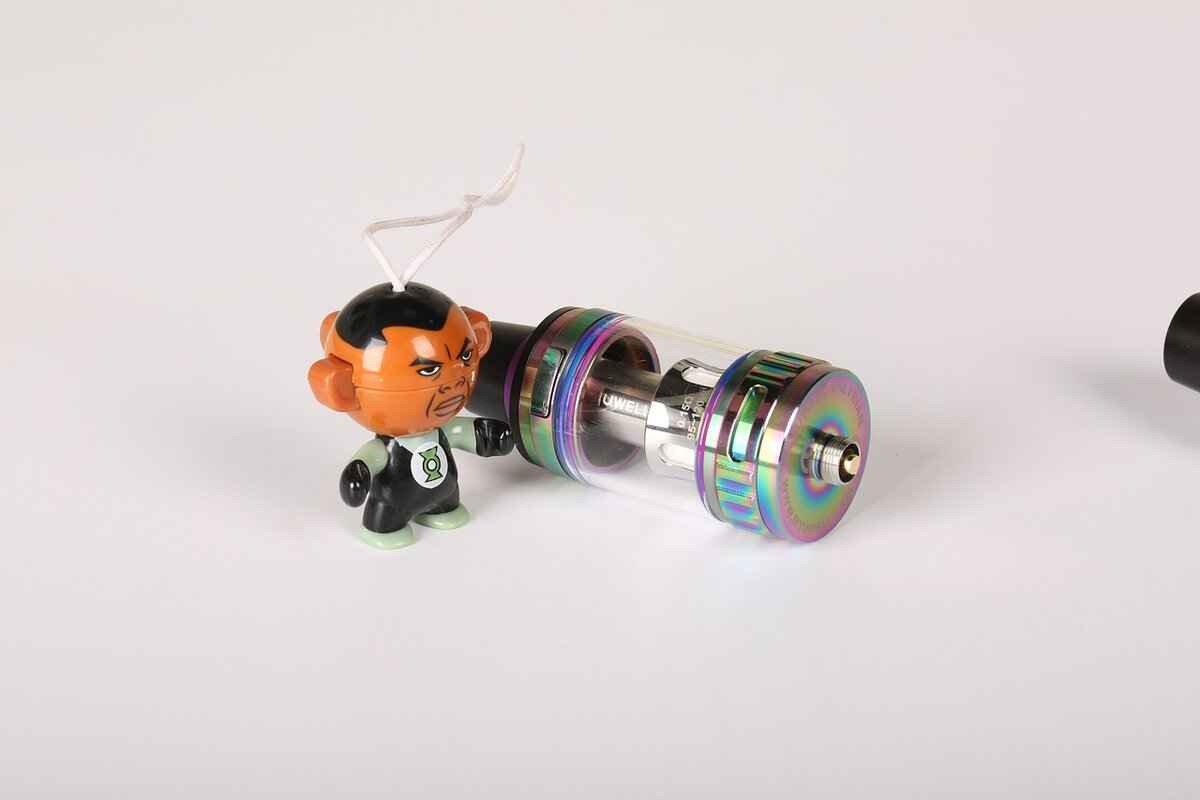
How Does Vaping Work?
Vaping has become a popular alternative to traditional smoking and even coffee consumption. But how does vaping work? Understanding this process is essential for anyone considering it as a substitute for their morning caffeine fix.
Vaping is the act of inhaling vapor produced by heating a liquid, commonly referred to as e-liquid or vape juice. This liquid typically contains nicotine, flavorings, and other chemicals. When heated, the liquid transforms into a vapor that can be easily inhaled, providing a quick and effective way to deliver nicotine into the bloodstream.
The mechanism behind vaping involves several key components:
- Atomizer: This is the heating element that vaporizes the e-liquid. When activated, it heats up to a temperature that converts the liquid into vapor.
- Battery: Most vaping devices are powered by rechargeable batteries that supply the necessary energy to the atomizer.
- Tank or Cartridge: This holds the e-liquid, which is fed to the atomizer for vaporization.
One of the main attractions of vaping is the speed at which nicotine is absorbed. When inhaled, nicotine rapidly enters the bloodstream, reaching the brain in just a few seconds. This quick delivery can create a sensation similar to that of drinking coffee, providing an immediate boost in alertness and focus.
While vaping is often marketed as a safer alternative to smoking, it is not without its risks. The vapor may contain harmful substances, and the long-term effects of inhaling these chemicals are still being studied. However, many users report that vaping produces fewer harmful byproducts compared to traditional tobacco smoke.
Another appealing aspect of vaping is the wide variety of flavors available. Users can choose from fruity, dessert, minty, and even beverage-inspired flavors. This variety allows for a more personalized experience compared to the relatively uniform taste of coffee.
For many, coffee is more than just a source of caffeine; it’s a daily ritual. Vaping may not replicate this experience entirely, as it lacks the warmth and social aspects associated with coffee consumption. However, it can serve as a quick alternative for those seeking a nicotine fix without the need for brewing a cup.
Similar to caffeine, nicotine can enhance mood and cognitive function. Many users report feeling more focused and alert after vaping. However, the psychological effects can vary greatly among individuals, and some may experience anxiety or irritability, particularly if they are trying to reduce their nicotine intake.
While vaping may be less harmful than smoking traditional cigarettes, it is essential to consider its effects on overall health. Research is ongoing, but potential risks include lung damage, cardiovascular issues, and addiction to nicotine. It’s crucial for users to weigh these factors carefully.
If you are considering vaping as a substitute for coffee, it’s important to do your research. Understanding the ingredients in e-liquids, the risks associated with nicotine, and the variety of devices available can help you make an informed choice. Consulting with a healthcare professional can also provide personalized insights based on your health status.

Can Vaping Provide Energy Like Coffee?
In today’s fast-paced world, many individuals seek quick energy boosts to help them stay alert and productive. Coffee has long been the go-to beverage for this purpose, thanks to its caffeine content. However, with the rise of vaping, some are considering whether it can serve as an alternative to their morning cup of joe. This article delves into the question:
Caffeine, the primary stimulant in coffee, works by blocking adenosine receptors in the brain, which helps to reduce feelings of tiredness and enhances alertness. This effect can lead to improved cognitive function and physical performance. However, excessive caffeine intake can result in negative side effects such as anxiety, restlessness, and sleep disturbances.
On the other hand, vaping delivers nicotine, a potent stimulant that can also enhance focus and energy levels. When inhaled, nicotine enters the bloodstream rapidly, providing an almost immediate effect. This can create a sense of heightened alertness similar to that of caffeine, but the long-term benefits of vaping are still under scrutiny.
Both coffee and vaping can offer a quick energy boost, but the mechanisms differ significantly. While coffee provides a more gradual increase in energy due to its caffeine content, vaping delivers nicotine almost instantaneously. This rapid delivery can lead to a quick spike in energy, but it may not last as long as the effects of caffeine.
Moreover, the energy boost from nicotine comes with a risk of dependence. Regular use can lead to increased tolerance, requiring higher doses to achieve the same effect. In contrast, caffeine users may also develop tolerance, but the overall health benefits of moderate coffee consumption, such as antioxidants and potential heart health improvements, are well-documented.
While some may view vaping as a safer alternative to smoking, it is essential to consider the health risks associated with it. Research has shown that vaping can lead to lung damage, addiction, and cardiovascular issues due to the chemicals present in vape products. Unlike coffee, which has been linked to various health benefits when consumed in moderation, vaping lacks these positive associations.
The decision to switch from coffee to vaping is highly personal and can depend on various factors, including individual health status and lifestyle preferences. Some may find that vaping provides a more enjoyable experience due to the variety of flavors available, while others might miss the ritual of brewing and savoring a cup of coffee.
While vaping may offer a convenient alternative for some, it is not a one-size-fits-all solution. Individuals with a history of nicotine addiction or those concerned about the long-term health implications of vaping should approach this switch with caution. Consulting with a healthcare professional can provide tailored advice and support for those considering this transition.
- Gradual Reduction: Start by slowly reducing your caffeine intake while incorporating vaping.
- Monitor Your Body: Pay attention to how your body responds to the change, adjusting as necessary.
- Stay Informed: Keep up with the latest research on both vaping and coffee to make informed choices.
Ultimately, while vaping can provide a quick energy boost similar to coffee, it is essential to weigh the benefits and risks carefully. Those considering making the switch should do so with a full understanding of their personal health and lifestyle factors.
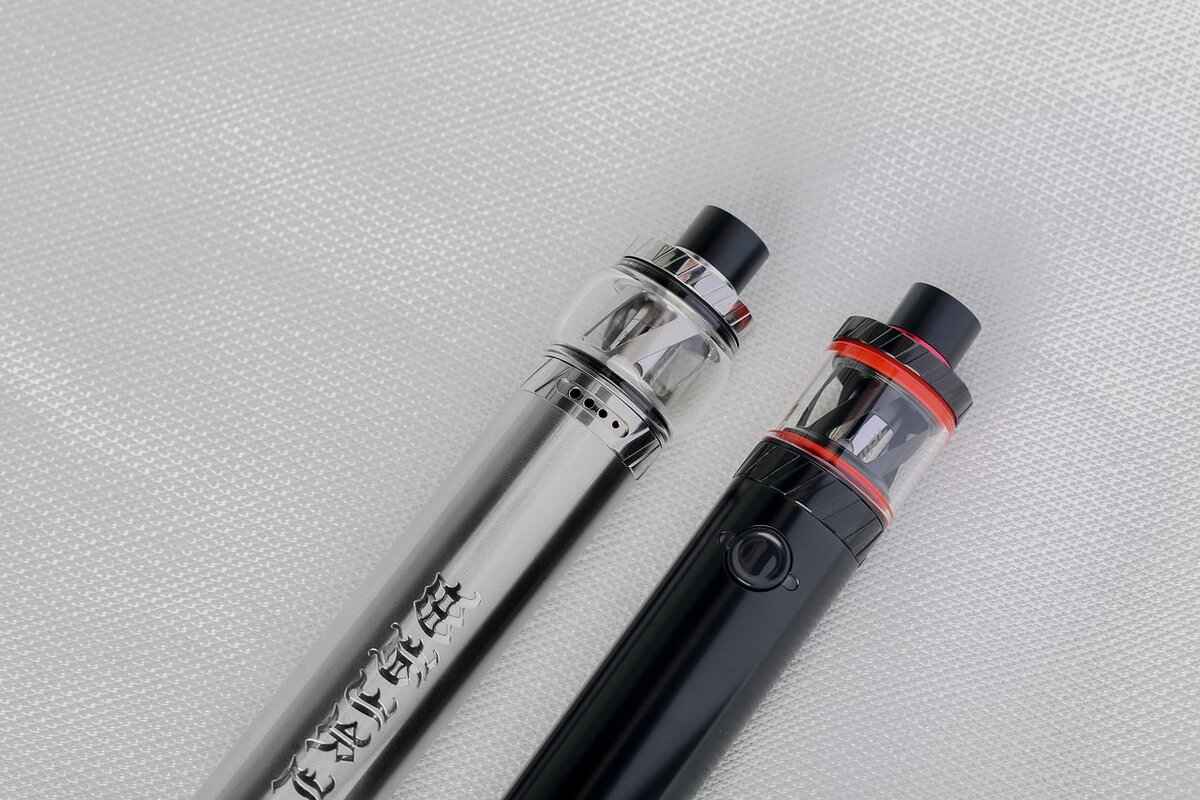
What Are the Health Risks of Vaping?
Vaping has gained popularity as an alternative to traditional smoking, often marketed as a safer option. However, it is essential to examine the health risks associated with vaping to make informed choices about its use. This article delves into the potential dangers linked to vaping, shedding light on the implications for users.
Despite the perception that vaping is less harmful than smoking cigarettes, research suggests that it carries significant health risks. Below are some of the primary concerns:
- Lung Damage: Studies indicate that inhaling vapor can lead to inflammation and damage in the lungs. The presence of various chemicals in vape liquids may contribute to respiratory issues over time.
- Addiction: Many vape products contain nicotine, a highly addictive substance. Users may find themselves developing a dependence, leading to withdrawal symptoms when attempting to quit.
- Cardiovascular Issues: Vaping has been linked to increased heart rate and blood pressure, raising concerns about its impact on cardiovascular health. Long-term use may elevate the risk of heart disease.
- Exposure to Toxic Substances: Vape liquids often contain various chemicals, some of which can be harmful when inhaled. These substances may include formaldehyde, acrolein, and other toxicants that can pose serious health risks.
- Potential for Popcorn Lung: Diacetyl, a flavoring agent found in some vape liquids, has been associated with a severe lung condition known as popcorn lung. This condition damages the small airways in the lungs and can lead to chronic respiratory issues.
While both vaping and smoking involve inhaling substances, their compositions differ significantly. Cigarettes contain tobacco, which produces tar and numerous carcinogens. Vaping, on the other hand, uses a liquid that is vaporized, often perceived as less harmful. However, the lack of long-term studies on vaping means that its safety profile is still under investigation.
Health experts are divided on the safety of vaping. Some argue that it can serve as a harm-reduction tool for smokers looking to quit, while others caution against its use due to the unknown long-term effects. The Centers for Disease Control and Prevention (CDC) and the World Health Organization (WHO) have both issued warnings regarding the potential health risks of vaping, underscoring the need for further research.
Users should be vigilant for signs of health issues related to vaping, which may include:
- Chronic Cough: A persistent cough may indicate lung irritation or damage.
- Shortness of Breath: Difficulty breathing or a feeling of tightness in the chest can be a warning sign.
- Fatigue: Unexplained tiredness may be linked to reduced lung function.
- Increased Heart Rate: Noticing a rapid heartbeat could indicate cardiovascular strain.
For those who choose to vape, minimizing risks is crucial. Here are some practical tips:
- Choose Quality Products: Opt for reputable brands that disclose their ingredients and adhere to safety standards.
- Limit Usage: Reducing the frequency of vaping can help mitigate health risks.
- Monitor Health: Regular check-ups with a healthcare professional can help identify any emerging health issues.
In summary, while vaping may seem like a safer alternative to smoking, it is not without its health risks. Understanding these risks is essential for making informed decisions and protecting one’s health.
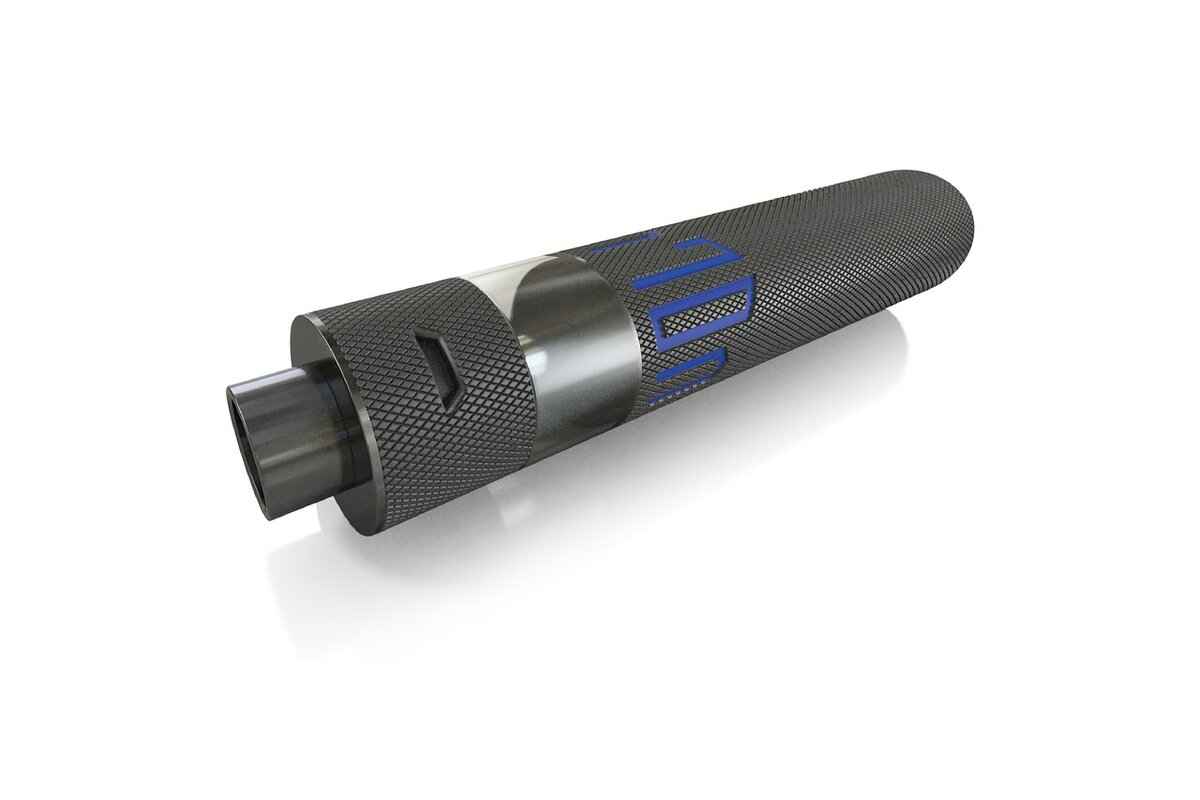
Is Vaping a Viable Replacement for Coffee?
In recent years, the debate surrounding vaping as a potential alternative to traditional coffee consumption has gained traction. Many individuals are curious about whether vaping can effectively replace their morning cup of coffee. This article delves into the viability of vaping as a substitute for coffee, examining various factors that influence its effectiveness.
One of the primary reasons people consider vaping as a coffee substitute is the quick energy boost it can provide. Similar to caffeine, nicotine found in vaping products can enhance focus and alertness. However, the experience of vaping is distinct from that of drinking coffee. While coffee offers warmth and a ritualistic experience, vaping presents a range of flavors and sensations that some may find appealing.
Personal preference plays a significant role in determining whether vaping can successfully replace coffee. For some, the act of sipping a hot beverage is comforting and part of their daily routine. In contrast, others may prefer the convenience and variety that vaping offers. Understanding individual tastes is essential when considering this switch.
While vaping is often touted as a less harmful alternative to smoking, it is not without risks. Research has shown that vaping can lead to lung damage, addiction, and cardiovascular issues. Unlike coffee, which has been shown to have some health benefits when consumed in moderation, the long-term effects of vaping are still largely unknown. Thus, individuals should weigh these health implications carefully before making a decision.
The ritual of drinking coffee is deeply ingrained in many cultures. For some, it represents a moment of pause in a hectic day. Vaping, while offering a different experience, may lack the same emotional connection. The social aspects of coffee drinking, such as meeting friends at a café, also differ significantly from the solitary nature of vaping. This aspect should be considered when evaluating vaping as a replacement.
- No Jitters: Many users report that vaping does not produce the jitters often associated with caffeine consumption.
- Flavor Variety: Vaping products come in numerous flavors, which can enhance the overall experience.
- Less Impact on Sleep: While both substances can disrupt sleep, the effects of nicotine may differ from those of caffeine.
Both vaping and coffee can provide a temporary boost in energy, but they do so through different mechanisms. While caffeine stimulates the central nervous system, nicotine acts as a stimulant that can enhance focus. However, the energy boost from vaping may not last as long as that from coffee, leading to potential cravings for more frequent use.
Health experts have mixed opinions on the viability of vaping as a coffee replacement. Some argue that it can be a useful tool for those looking to reduce caffeine intake, while others caution against the potential health risks associated with nicotine. Consulting with a healthcare professional can provide personalized guidance based on individual health needs.
If someone decides to explore vaping as a coffee alternative, it is advisable to approach the transition gradually. Reducing caffeine intake slowly while incorporating vaping can help minimize withdrawal symptoms and allow for a smoother adjustment. Keeping track of how one feels during this transition can also provide valuable insights.
Before deciding to replace coffee with vaping, it is crucial to consider personal health, potential for nicotine addiction, and lifestyle choices. Understanding the implications of such a switch can help individuals make informed decisions that align with their health goals and preferences.

What Are the Benefits of Vaping Over Coffee?
When considering alternatives to traditional coffee consumption, many individuals are exploring the potential benefits of vaping. Vaping has emerged as a popular option, particularly among those seeking to reduce their caffeine intake without sacrificing the enjoyment of a flavorful experience. This article delves into the various advantages of vaping over coffee, providing insights into how it can enhance user experience while addressing some common concerns.
- No Jitters or Crashes: One of the most significant advantages of vaping is the absence of the jitters and crashes often associated with caffeine consumption. While caffeine can lead to spikes in energy followed by sudden drops, vaping allows users to enjoy a more stable experience. The nicotine in vape products can provide a smoother energy boost without the accompanying anxiety that caffeine can trigger.
- Variety of Flavors: Vaping offers an extensive range of flavors that can enhance the enjoyment of the experience. From fruity to dessert-inspired options, users can select their preferred taste, making it a more personalized alternative to the often limited flavors of coffee. This variety can transform the act of vaping into a delightful ritual.
- Quick Delivery of Nicotine: Vaping delivers nicotine rapidly into the bloodstream, similar to the way caffeine affects the body. This quick absorption can provide an immediate sense of alertness and focus, making it an appealing choice for those looking for a fast pick-me-up.
- Less Acidic: Coffee is known for its acidity, which can cause digestive discomfort for some individuals. In contrast, vaping is generally less harsh on the stomach, potentially offering a more pleasant experience for those sensitive to acidic beverages.
- Social Aspects: Vaping can also serve as a social activity, bringing individuals together in a way that traditional coffee consumption might not. Vape lounges and communities have emerged, providing a space for users to connect and share their experiences, which can enhance the overall enjoyment.
- Control Over Nicotine Intake: Vaping allows users to have greater control over their nicotine consumption. E-liquids come in various strengths, enabling individuals to choose the amount of nicotine that suits their needs. This flexibility can be particularly beneficial for those looking to gradually reduce their nicotine intake.
Despite these benefits, it is essential to approach vaping with caution. While it may offer advantages over coffee, there are still health risks associated with nicotine and other chemicals found in vape products. Research continues to evolve, and understanding the potential implications is crucial for making informed decisions.
In conclusion, while vaping presents several advantages over coffee, including a more enjoyable flavor experience and the absence of jitters, it is vital to weigh these benefits against the potential health risks. As with any lifestyle change, consulting with a healthcare professional can provide guidance tailored to individual health needs and preferences.

How Do Vaping and Coffee Impact Sleep?
Both vaping and coffee are popular choices for those seeking a boost in energy or focus, but their effects on sleep can be quite different. Understanding how each substance interacts with the body is essential for anyone looking to manage their sleep quality effectively.
Caffeine’s Role in Sleep Disruption
Caffeine is a well-known stimulant that can significantly affect sleep patterns. When consumed, it blocks the action of adenosine, a brain chemical involved in sleep regulation. If caffeine is ingested too late in the day, it can lead to insomnia or difficulty falling asleep. Research suggests that even moderate caffeine consumption in the afternoon can reduce total sleep time and alter sleep architecture, leading to less restorative sleep.
The Effects of Nicotine on Sleep
On the other hand, nicotine, the primary active ingredient in many vaping products, also disrupts sleep but through different mechanisms. As a stimulant, nicotine can increase heart rate and activate the brain, making it harder for individuals to relax and fall asleep. Studies have shown that nicotine use can lead to fragmented sleep and reduced overall sleep quality. Moreover, withdrawal from nicotine during the night can cause awakenings and restlessness.
Comparative Analysis of Sleep Disruption
| Substance | Primary Effects on Sleep | Time of Day Impact |
|---|---|---|
| Caffeine | Insomnia, reduced sleep quality | Late afternoon/evening |
| Nicotine | Fragmented sleep, increased awakenings | Anytime, especially during withdrawal |
Understanding Individual Responses
It’s important to note that individual responses to both caffeine and nicotine can vary widely. Factors such as genetics, tolerance, and personal health can influence how each substance affects sleep. Some individuals may find that they can consume caffeine in moderation without significant impact on their sleep, while others may be more sensitive to its effects.
Strategies for Better Sleep Hygiene
- Limit caffeine intake to the morning hours.
- Avoid nicotine in the hours leading up to bedtime.
- Create a relaxing bedtime routine to signal your body it’s time to wind down.
- Consider reducing or eliminating both substances if sleep issues persist.
Expert Opinions on Vaping and Coffee
Experts emphasize the importance of understanding how both substances can affect sleep. While some may consider vaping as a less disruptive alternative to coffee, it still poses risks to sleep quality. Consulting with a healthcare professional can provide personalized insights and recommendations for managing caffeine and nicotine consumption.
In conclusion, both vaping and coffee can significantly impact sleep, albeit in different ways. Recognizing how each substance affects your body and sleep patterns is crucial for making informed choices about their consumption. By adopting healthier habits and being mindful of intake timing, individuals can enhance their sleep quality and overall well-being.

What Do Experts Say About Vaping as an Alternative?
In recent years, the popularity of vaping has surged, leading to increased discussions about its potential as an alternative to traditional coffee consumption. Experts remain divided on this issue, with some advocating for its benefits in reducing caffeine intake, while others express concerns regarding the long-term health implications of vaping. This article delves into the perspectives of various experts, aiming to provide a balanced overview of the ongoing debate.
Proponents of vaping as a coffee alternative often highlight its ability to deliver a quick boost of energy. Nicotine, the primary ingredient in most vape products, can enhance alertness and concentration, similar to the effects of caffeine. Some experts suggest that switching to vaping may help individuals cut down on their caffeine consumption, potentially reducing the risk of caffeine-related side effects such as anxiety and insomnia.
Despite the potential benefits, many experts caution against the unknown long-term health effects of vaping. Research is still ongoing, and while vaping is often marketed as a safer alternative to smoking, it is not without risks. Health professionals have raised alarms about the possibility of lung damage, addiction, and cardiovascular issues linked to nicotine and other chemicals found in vape products. The lack of comprehensive studies on the long-term effects of vaping leaves many questions unanswered.
When comparing the health impacts of vaping and coffee, it’s essential to consider the differences in their consumption. While coffee has been associated with certain health benefits, including improved cognitive function and reduced risk of some diseases, vaping lacks such proven advantages. The absence of extensive research on vaping’s health effects makes it challenging for experts to fully endorse it as a safe alternative to coffee.
Health organizations, including the World Health Organization (WHO), have expressed caution regarding vaping. They emphasize the need for more research to understand the long-term consequences of inhaling vaporized substances. Experts advise individuals to approach vaping with caution, particularly those who are not currently smokers or those trying to quit smoking.
Individual experiences with vaping can vary widely. Some users report enjoying the flavor variety and the absence of jitters typically associated with caffeine consumption. However, others find that the nicotine hit can lead to dependency and withdrawal symptoms, complicating the transition from coffee to vaping. Personal preference plays a significant role in determining whether vaping can effectively replace coffee for any individual.
Before making a decision to switch from coffee to vaping, consider the following factors:
- Health Status: Assess any pre-existing health conditions that may be affected by nicotine consumption.
- Nicotine Addiction: Be aware of the potential for addiction and the challenges that may arise from transitioning away from caffeine.
- Personal Preferences: Reflect on your preferences regarding taste, ritual, and social aspects of coffee versus vaping.
Consulting with a healthcare professional can provide personalized insights and help navigate the complexities of making this switch safely.
In conclusion, while some experts see potential in vaping as a means to reduce caffeine intake, the debate remains complex and nuanced. The long-term health effects of vaping are still not fully understood, and individuals should weigh the pros and cons carefully. Ultimately, whether vaping can serve as a viable replacement for coffee depends on personal circumstances and health considerations.
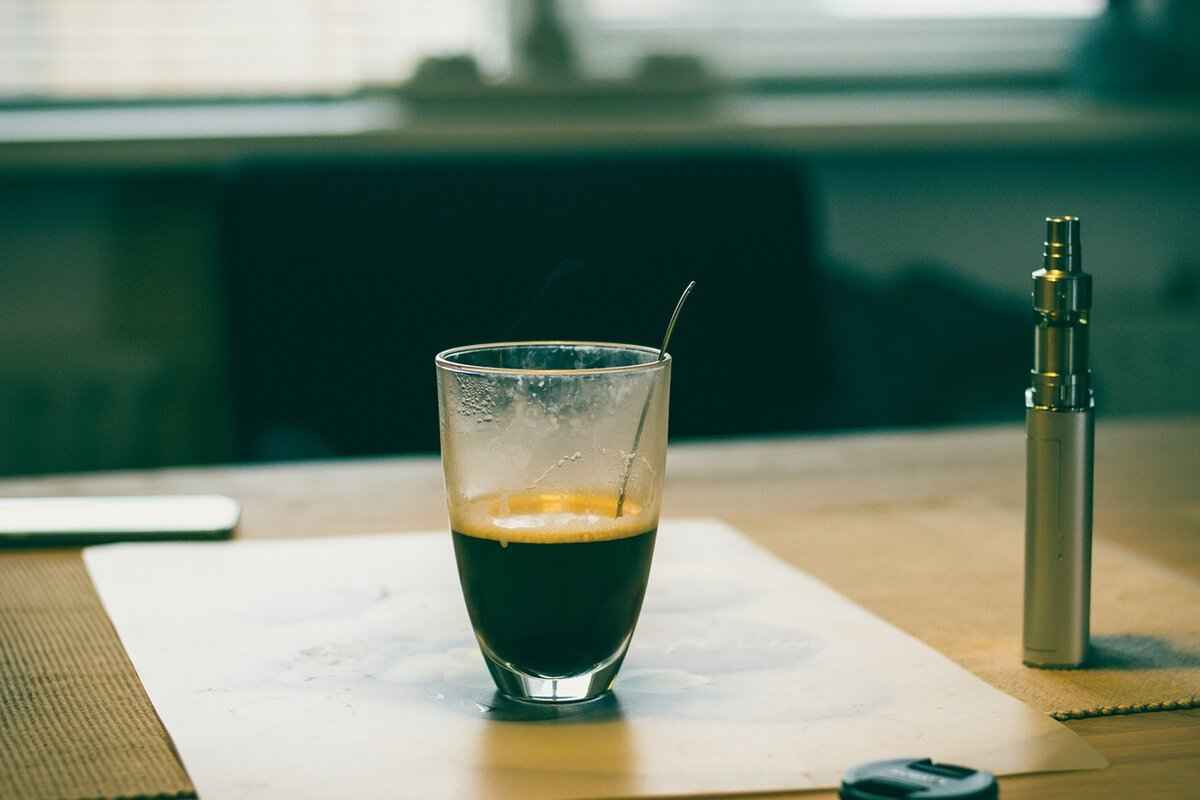
How Can You Transition from Coffee to Vaping Safely?
Transitioning from coffee to vaping can be a significant lifestyle change, and it requires careful planning to ensure a smooth experience. Many individuals find it challenging to give up caffeine, which makes understanding the transition process essential. This article will explore effective strategies for making the switch while minimizing withdrawal symptoms.
One of the most effective methods for transitioning from coffee to vaping is to gradually reduce caffeine intake. This approach allows your body to adjust without experiencing severe withdrawal symptoms such as headaches, irritability, or fatigue. Start by decreasing the number of cups of coffee you consume each day. For instance, if you typically drink four cups, reduce it to three for a week, then two, and so on. This slow tapering can help your body adapt more comfortably.
As you reduce your coffee intake, begin to introduce vaping into your daily routine. Choose a vape juice that contains nicotine, as this can help replicate some of the stimulating effects of caffeine. Start with a lower nicotine level and gradually adjust as needed. It’s important to find a flavor that you enjoy, as this can make the transition more enjoyable and less daunting.
Withdrawal symptoms can be a significant barrier when transitioning from coffee to vaping. By reducing caffeine intake gradually and introducing vaping, you can help mitigate these symptoms. Staying hydrated and maintaining a balanced diet can also aid in managing discomfort. Incorporating regular exercise into your routine can boost your mood and energy levels, making the transition smoother.
As you navigate this transition, it’s crucial to listen to your body. Everyone’s experience will differ, and some may find that they need to adjust their approach based on how they feel. If you notice that vaping is not providing the desired energy boost, consider adjusting the nicotine level or the frequency of vaping. It’s essential to find a balance that works for you.
Before making any significant changes to your routine, it can be helpful to consult with a healthcare professional. They can provide personalized advice based on your health history and needs. This step is especially important if you have underlying health conditions or concerns about nicotine use.
While vaping is often seen as a safer alternative to smoking, it’s essential to understand the potential risks involved. Research indicates that vaping can still pose health risks, including addiction to nicotine and potential lung damage. Being informed about these risks can help you make a more educated decision about your transition.
Having a support system in place can significantly ease the transition from coffee to vaping. Whether it’s friends, family, or online communities, sharing your experiences and challenges can provide motivation and encouragement. Engaging with others who have made similar transitions can offer valuable insights and tips.
As you reduce your coffee intake and incorporate vaping, consider establishing new routines that do not revolve around caffeine consumption. For example, replace your morning coffee ritual with a vaping session or find alternative activities to engage in during your usual coffee breaks. This shift can help reinforce your new habits and make the transition feel more natural.
Transitioning from coffee to vaping is a process that requires patience and planning. By gradually reducing caffeine intake, introducing vaping, and listening to your body, you can make this change more manageable. Remember to consult healthcare professionals if needed and create a supportive environment to help you succeed.
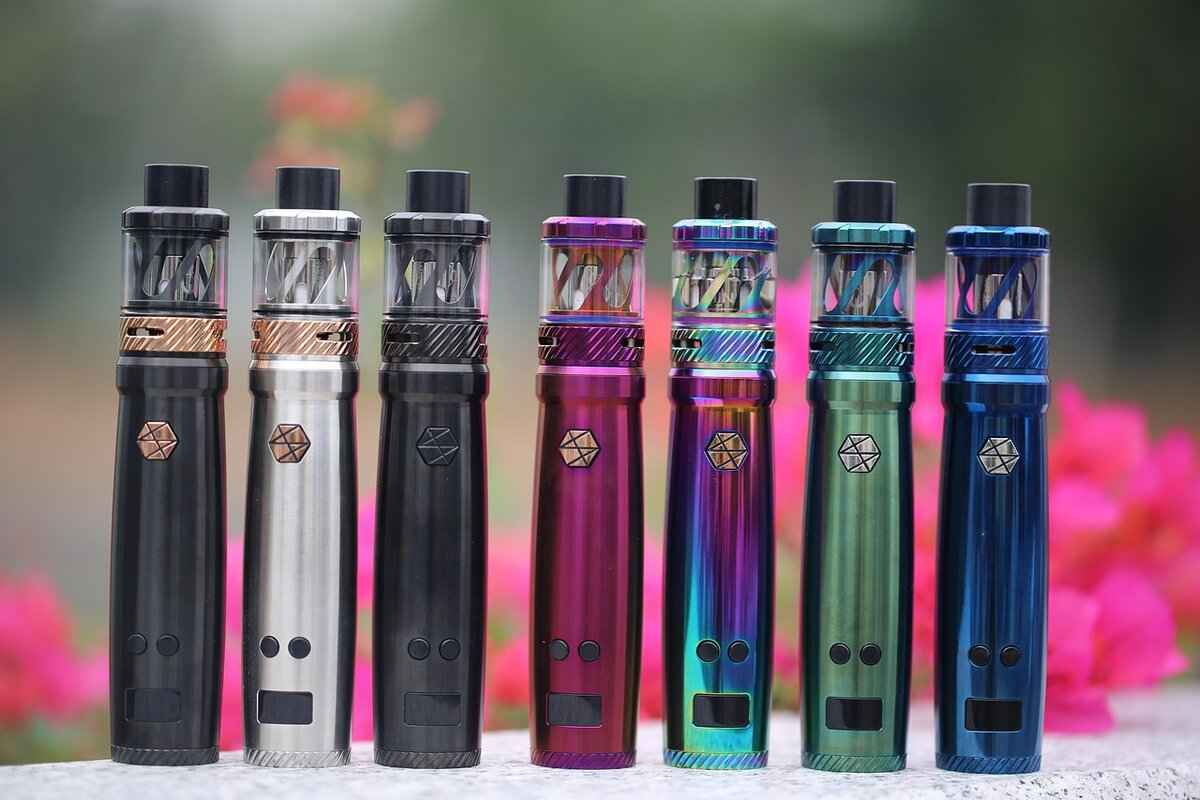
What Should You Consider Before Making the Switch?
When contemplating the transition from coffee to vaping, there are several critical factors to consider. This decision is not merely about replacing one habit with another; it involves understanding the implications on your health, lifestyle, and overall well-being. Below are essential considerations to guide your decision-making process.
- Health Status: Your current health condition plays a significant role in determining if vaping is a suitable alternative. Individuals with pre-existing health issues, particularly respiratory or cardiovascular problems, should approach vaping with caution. It is advisable to consult a healthcare professional who can evaluate your health and provide personalized recommendations.
- Nicotine Addiction Potential: One of the most crucial aspects of switching to vaping is the risk of nicotine addiction. While coffee contains caffeine, which can also be addictive, nicotine is known for its highly addictive properties. Assessing your susceptibility to addiction is vital before making the switch. If you have a history of substance dependence, this factor should weigh heavily in your decision.
- Personal Preferences: Your preferences and lifestyle choices significantly influence whether vaping can effectively replace coffee. Consider your daily routine, social habits, and the sensory experience you derive from coffee. Vaping offers a different experience, often characterized by various flavors and sensations. Reflect on whether these aspects align with your personal tastes.
- Psychological Factors: The psychological component of coffee consumption is often overlooked. Many individuals enjoy the ritual of making and drinking coffee, which can provide comfort and a sense of routine. If you find that the act of drinking coffee is integral to your day, consider whether vaping can fulfill this psychological need.
- Consultation with Healthcare Professionals: Before making any significant lifestyle change, especially one that involves substances like nicotine, it is wise to seek advice from healthcare professionals. They can provide insights tailored to your specific health needs and help you weigh the pros and cons of transitioning from coffee to vaping.
In conclusion, the decision to replace coffee with vaping should not be taken lightly. By considering your health status, the potential for nicotine addiction, personal preferences, and the psychological aspects of your habits, you can make a more informed choice. Engaging with a healthcare provider can further enhance your understanding and ensure a safer transition.
Frequently Asked Questions
- Can vaping really replace my coffee habit?
While vaping can provide a quick energy boost similar to coffee, it lacks the broader health benefits of caffeine. It’s essential to weigh personal preferences and health implications before making the switch.
- What are the main health risks associated with vaping?
Vaping carries potential health risks, including lung damage, addiction, and cardiovascular issues due to nicotine and other chemicals. It’s crucial to be aware of these risks when considering vaping as an alternative.
- How does nicotine in vaping compare to caffeine?
Nicotine can enhance focus and energy quickly, similar to caffeine, but it doesn’t offer the same health benefits and can lead to addiction. Understanding these differences is vital for making an informed choice.
- What should I consider before transitioning from coffee to vaping?
Before making the switch, think about your health status, potential nicotine addiction, and personal preferences. Consulting a healthcare professional can provide tailored advice for a safe transition.
- Are there any benefits of vaping over coffee?
Yes! Vaping may offer advantages like no jitters or crashes associated with caffeine. Plus, the variety of flavors can make the vaping experience more enjoyable for some users.














